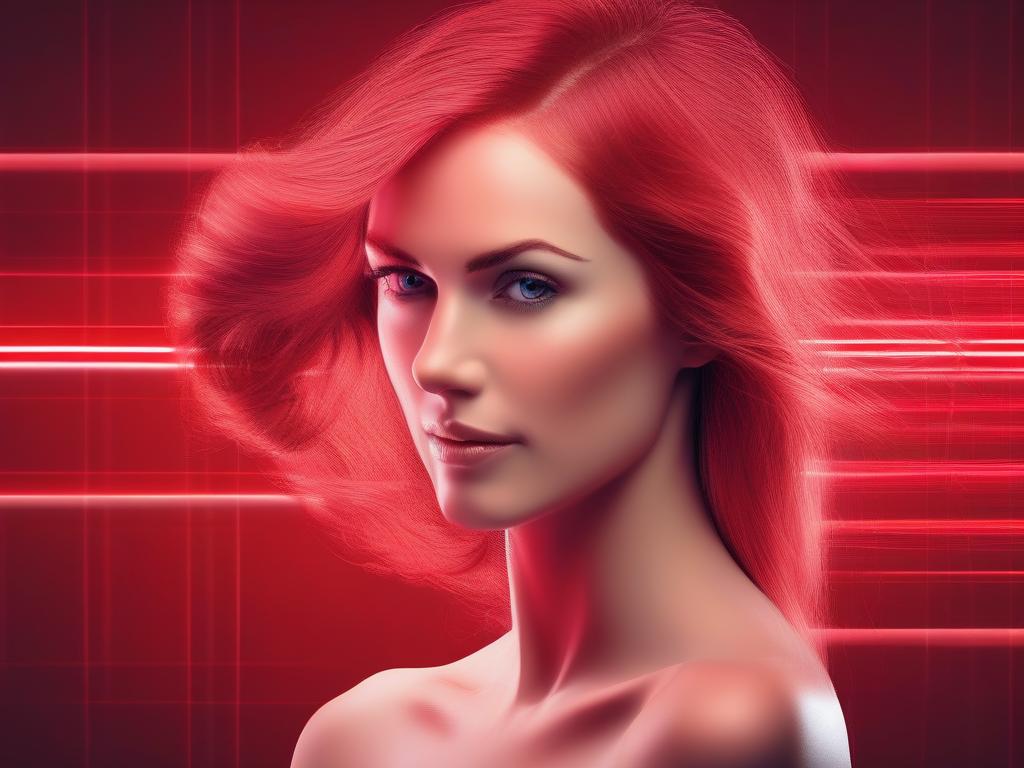Red Light Therapy for Hair Loss: Does It Work?
Table of Contents
What Is Red Light Therapy?
Red light therapy (RLT) is a non-invasive treatment that uses low-level red and near-infrared light to stimulate cellular activity. Originally developed by NASA for plant growth experiments, it’s now widely used for skin rejuvenation, pain relief, and—yes—hair regrowth.
But how does it work for hair loss? Let’s dive into the science.
The Science Behind Hair Growth
Hair growth occurs in cycles: anagen (growth), catagen (transition), and telogen (resting). Hair loss happens when follicles stay in the telogen phase too long or shrink (miniaturization).
How Red Light Therapy Stimulates Hair Follicles
Red light therapy penetrates the scalp and energizes mitochondria—the “powerhouses” of cells. This boosts ATP (energy) production, which can:
- Extend the anagen (growth) phase
- Increase blood flow to follicles
- Reduce inflammation (a key cause of hair loss)
Clinical Evidence
Multiple studies support RLT for hair regrowth:
| Study | Participants | Results |
|---|---|---|
| Lasers in Surgery and Medicine (2014) | 41 men and women | 39% increase in hair density after 16 weeks |
| American Journal of Clinical Dermatology (2017) | 11 studies reviewed | RLT showed “significant improvement” in hair count |
Does Red Light Therapy Work for Hair Loss?
Yes—but results vary by cause of hair loss. Here’s how it stacks up:
Best For:
- Androgenetic alopecia (pattern baldness) – 60-70% see improvement
- Telogen effluvium (stress-related shedding) – Faster recovery
Less Effective For:
- Scarring alopecia
- Complete baldness (no follicles left)
Realistic Expectations
Most users see:
| 8-12 weeks | Reduced shedding |
| 4-6 months | Visible regrowth |
How to Use Red Light Therapy for Hair Loss
Step-by-Step Guide
- Choose a device: Caps, combs, or panels (660nm red + 850nm infrared ideal)
- Treatment time: 10-20 minutes per session, 3-5x weekly
- Consistency: Minimum 4 months for results
Tips for Best Results
- Part hair to expose scalp
- Combine with minoxidil for synergy
- Avoid overuse (no more than daily)
Pros and Cons of Red Light Therapy
| Pros | Cons |
|---|---|
| Non-invasive & painless | Slow results (months) |
| No side effects | Ongoing cost of devices |
| Works with other treatments | Not FDA-cleared for all devices |
Final Verdict
Red light therapy is a scientifically backed, low-risk option for hair regrowth—especially for early-stage thinning. While not a miracle cure, it can significantly improve hair density when used consistently.
Ready to try red light therapy? Visit our website to learn more about our products and services at https://dunemedicaldevicesinc.com/shop-2/.
Frequently Asked Questions
How long until I see results from red light therapy?
Most users notice reduced shedding in 2-3 months, with visible regrowth after 4-6 months of consistent use.
Can red light therapy cause side effects?
RLT has no serious side effects when used properly. Rare cases report mild scalp irritation.
Is red light therapy better than minoxidil?
They work differently—RLT stimulates follicles, while minoxidil prolongs growth phases. Combining both often yields best results.
How often should I use red light therapy for hair loss?
3-5 sessions weekly (10-20 minutes each) is ideal. Daily use isn’t harmful but may not speed up results.
Can women use red light therapy for hair loss?
Yes! Studies show similar effectiveness for female pattern hair loss.

